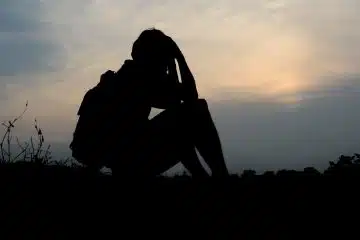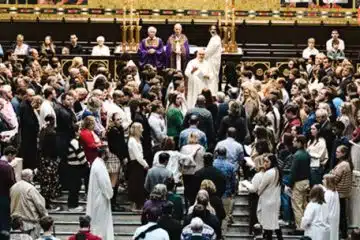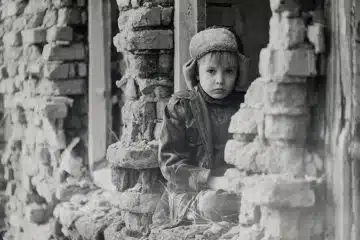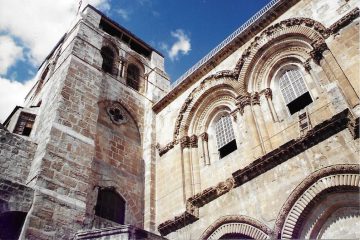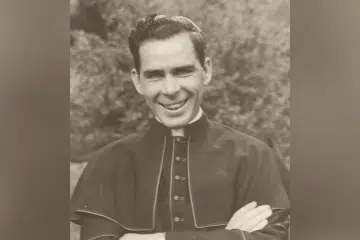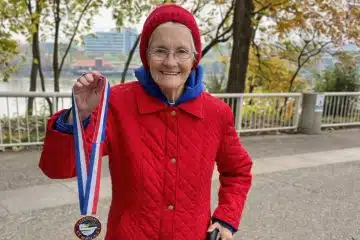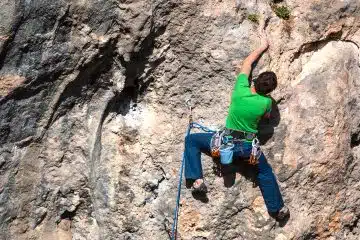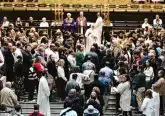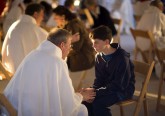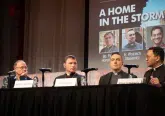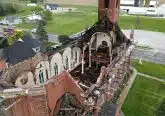Local religious ed leaders respond to survey of religious knowledge
Nov. 12, 2010
By David Eck
ARCHDIOCESE — A recent survey of Americans showing that atheists, agnostics and Jews know more about religion than practicing Christians should serve as a wake-up call for the church, Catholic leaders in the Cincinnati archdiocese say.
The 32-question survey was conducted by the Pew Forum on Religion and Public Life over the summer and released Sept. 28. Among the findings: only 55 percent of Catholics correctly identified church teaching about transubstantiation; 42 percent knew Genesis is the first book of the Bible; and 33 percent correctly identified the four Gospels. Only 25 percent of Catholics knew that Job was the character who remained faithful despite his great trials.
“This is the kind of information that we talk about when we gather as a staff,” said Ken Gleason, director of the archdiocesan Office of Evangelization and Catechesis. “I’m going to spend a lot of time talking about this and struggling with what’s the best way to deal with issues like this.”
A simple but key element in addressing the issue is for parishes to make parishioners feel welcome and appreciated, Gleason said. If a person doesn’t have a positive experience at church, they won’t be inclined to study the faith and learn more.
Catholics should proclaim the faith and share their stories, Gleason explained. They need to be actively talking about their faith to inspire others.
“It’s all those dimensions of evangelization that really are the things that are at issue here,” Gleason said. “If [people] aren’t into the fold, then they’re not open to listening to what your arguments for the faith might be.”
New technology such as social media and communication devices needs to be used by religious teachers to reach the next generation of Catholics and teach them the faith. Today’s younger Catholics aren’t going to sit and read volumes of text. Teachers need to adopt interactive teaching methods and engage young people in learning Catholic traditions if the situation is to change, Gleason said.
“We need to understand that younger adults learn in much smaller bites. We have to be able to present the faith in bits and pieces,” Gleason said. “We have to use their media first because, if not, they’re not going to listen to what we have to say. As wonderful of a gift as the Catechism of the Catholic Church is, we can’t start there.”
Another concern, Gleason said, is that active Catholics believe they already have a strong knowledge of the faith, so they don’t do additional study. Catholics in the past often grew up in the faith, attended Catholic schools and by extension maintained their faith as adults, he added. As the culture and American lifestyle have changed, that’s no longer a constant.
The number of students attending Catholic school is declining, and some children today don’t have much religious education beyond sacramental preparation, Gleason said. Catholics need to adopt the notion of becoming a disciple and a dedication to living in a Christ-like way.
“It has to be lived and it has to be proclaimed,” Gleason said. “Catholics, I think, are actually better at living it and not as good at proclaiming it.”
Addressing the issue will take a compilation of strategies including hospitality, utilizing social media, evangelization and reaching younger people.
“It’s a matter of everyone addressing this problem,” Gleason said. “It’s a matter of taking ownership of the faith in a positive sense and expressing what we believe and taking it upon ourselves to become knowledgeable about the faith.”
Administrators at Catholic colleges say the religious studies courses their students take provide a deeper understanding of Catholicism regardless of the students’ own faith tradition.
“Our Catholic tradition is so rich with wonderful resources and so many of our young people come to us without a foundation for understanding it,” said Sister of Charity Marge Kloos, dean of arts and humanities at the College of Mount St. Joseph. “I think we’re very intentionally trying to address that.”
At the college all students are introduced to religious studies, philosophy and ethics. Administrators are also hiring professors and instructors who can engage young adult Catholics.
“It’s obvious our young people aren’t as exposed to tradition,” Sister Marge said. “I’m looking at it as an opportunity for all of us to retool and rethink with our young people around faith questions.”
At the University of Dayton all students take at least two religion courses to learn about the intellectual elements of the faith. Students also have opportunities for faith formation in small groups in campus neighborhoods, through talks and other presentations, said Sandra Yocum, chairperson of religious studies.
Mass attendance and taking advantage of educational opportunities within the
parish would help stem the survey’s findings, said Jim Rigg, Cincinnati archdiocesan superintendent of Catholic schools. The schools are constantly evaluating their programs to ensure they are updated and provide faith formation that is authentic and accurately portrays church teaching, he noted.
“I think it’s important for schools to invest the time and training and resources into their religion programs that they invest into other academic areas,” Rigg said. “Religion and faith formation need to come first in a Catholic school and shouldn’t just be relegated to a 60 or 45-minute class once a day. Faith formation and teaching should be ingrained in all of the subjects, even those that aren’t necessarily ‘religion.’”
While high school students present unique challenges, teachers need to allow those students a degree of exploration in regard to faith, but still keep them grounded in the basic principals of Catholicism.
“Most importantly, I think high school religion teachers need to make the faith relevant to the kids,” Rigg said. “Catholic worship and the sacraments can’t simply be something that happens on an altar 100 yards away. It’s got to be something that’s lived and breathed into the life of the high school student.”
While Catholic schools and parish religious formation programs do a good job of reaching students, Rigg said, pastors and parish directors of religious formation should strive to keep adults connected to faith formation programs in the parishes. Rigg said.
Parishioners need to be well versed and educated in the faith. They should attend Mass, participate in the sacraments and service opportunities, and not just show up to Mass a couple of times a year, he said. Adult Catholics need to practice Catholicism as part of their daily lives.
“We have to change the way in which we are conveying our message,” Rigg said. “We can’t automatically assume that people will come to our training courses if we’re teaching in the same ways that we taught 30 years ago.”
CNS also contributed to this story. David Eck can be reached at [email protected].


